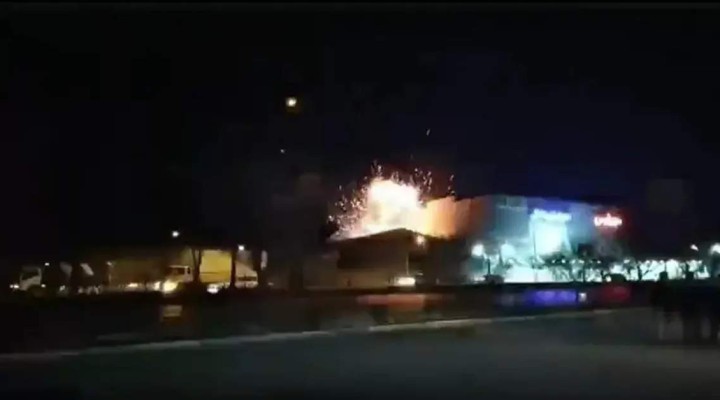When will Iran’s patience run out?

Israel’s latest attacks make the strategy of ‘forbearance’ harder to maintain
The US and Israel seem to have become frustrated with Iran’s longstanding policy of ‘strategic forbearance’, under which it has refrained from retaliating to their covert attacks on its nuclear facilities and assassinations of Iranian scientists — as well as similar attacks on Iranian personnel in Syria — or their incitement of anti-regime protests.
This is making them alter their strategy and broaden and escalate their rules of engagement. That may explain last Sunday’s Israeli suicide drone strikes on Iranian military plants, bases, and warehouses in Isfahan; the attack on a convoy of trucks allegedly carrying Iranian military equipment near the Abu Kamal Iraq-Syria border crossing, and the bombing of a vehicle carrying the commander of a pro-Iranian Iraqi armed group and two of his aides who went to inspect the site.
US officials told The Wall Street Journal, which is close to the Pentagon, that Israel carried out the attack on Isfahan and the US was not involved. This followed Iran’s announcement that it downed three of the attacking drones, making it impossible for the Israelis to deny responsibility.
Two pressing questions arise here: Why was Isfahan targeted, and how will Iran respond? One could add a third: From which country were the drones launched?
Isfahan province, in central Iran, was chosen because facilities for manufacturing drones and (with Russian help) hi-tech missiles are located there, as well as several nuclear installations including the Natanz reactor. Former Mossad chief Danny Yatom said on Monday that one of the targeted facilities is used to develop hypersonic missiles that could be too fast for Israel’s advanced air defence systems to intercept.
Regarding the nature, likelihood, and scale of the Iranian response, there are several options.
One would be direct Iranian retaliation in kind against Israeli military infrastructure using long-range precision missiles. That could lead to all-out war.
A second option would be drone strikes against targets in the countries where Israeli drones were launched. Fingers point to Iraqi Kurdistan or Azerbaijan, where
Israeli military outposts are based.
The third would be for the Iranian leadership to get its paramilitary allies in Iraq, Lebanon and Yemen — and perhaps the Gaza Strip and West Bank — to respond on its behalf, whether separately or collectively.
There has been a flurry of visits by US officials to occupied Jerusalem of late, including National Security Adviser Gen. Jake Sullivan, CIA Director William Burns, and Secretary of State Antony Blinken. There is no evidence that their main objective was the stated intention of calming the situation in occupied Palestine. These visits are mainly about preparing for joint action against Iran, especially in the wake of the most extensive set of joint Israeli-US military exercises in a decade. These drills simulated bombing nuclear facilities in a hostile state and confronting various threats in the Middle East. No country meets those specifications other than Iran.
Israeli military experts are again sounding the alarm-bells and warning that Iran is on the verge of producing nuclear weapons. Netanyahu and his generals might resort to war in order to unite the divided Israeli public and put an end to the huge protests demanding the removal of his fascist government.
One thing is for sure. Iran’s policy of restraint and refraining from direct retaliation, which it has stuck to for years regarding Israeli attacks and assassinations, may no longer be viable now that Israeli drones have openly reached Isfahan and its military facilities. So I would anticipate a serious response designed to deter further similar attacks, which could presage or expedite an all-out confrontation.
The region is simmering. Iran’s cooperation with Russia, the collapse of the Vienna nuclear talks, and US setbacks in Ukraine, could prompt the USA and Greater Israel to commit a major act of folly — which could usher in the end of US and Western global hegemony, and set forward the hands of the Doomsday Clock.
https://www.raialyoum.com/when-will-irans-patience-run-out/
 TheAltWorld
TheAltWorld 
0 thoughts on “When will Iran’s patience run out?”